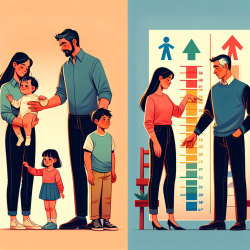Understanding Cultural Sensitivity in Healthcare
As healthcare providers, understanding the cultural nuances of our patients can significantly impact the effectiveness of our care. A recent study titled Cultural understanding, experiences, barriers, and facilitators of healthcare providers when providing preconception counseling to adolescent Latinas with diabetes highlights the importance of culturally sensitive approaches in healthcare, particularly for adolescent Latinas with diabetes.
Key Findings from the Study
The study identified several themes that healthcare providers should consider when offering preconception counseling (PC) to adolescent Latinas with diabetes. These include:
- Identity and Acculturation: Adolescents often strive to blend in with their peers, which can create tension with family members who may hold more traditional values.
- Language Barriers: Communication is crucial, and language differences can hinder effective healthcare delivery.
- Religious Influences: Religious beliefs can impact decisions regarding reproductive health and contraception.
- Family Dynamics: The involvement of family members in healthcare decisions is significant and can influence outcomes.
Barriers and Facilitators
The study identified four main barriers to effective PC:
- Language differences between healthcare providers and families.
- Religious beliefs that may conflict with medical advice.
- Limited access to healthcare services.
- Discomfort in discussing reproductive health topics.
Conversely, the study also identified facilitators that can enhance healthcare delivery:
- Building trust between healthcare providers, patients, and their families.
- Providing care in the patient's preferred language.
- Empowering patients through education and support networks.
- Emphasizing safety and planning for the future.
Implications for Practice
For healthcare providers, the findings suggest several strategies to improve care for adolescent Latinas with diabetes:
- Avoid stigmatizing language and practices that may make patients feel "different" or "othered."
- Incorporate family-centered care approaches, recognizing the role of family dynamics in healthcare decisions.
- Utilize professional translators when necessary to overcome language barriers.
- Respect cultural and religious beliefs while providing evidence-based medical advice.
By implementing these strategies, healthcare providers can improve outcomes for adolescent Latinas with diabetes, ensuring that they receive culturally sensitive and effective care.
Encouraging Further Research
This study underscores the importance of ongoing research into culturally sensitive healthcare practices. Practitioners are encouraged to engage with the latest research and apply these insights to their practice to enhance patient care.
To read the original research paper, please follow this link: Cultural understanding, experiences, barriers, and facilitators of healthcare providers when providing preconception counseling to adolescent Latinas with diabetes.










